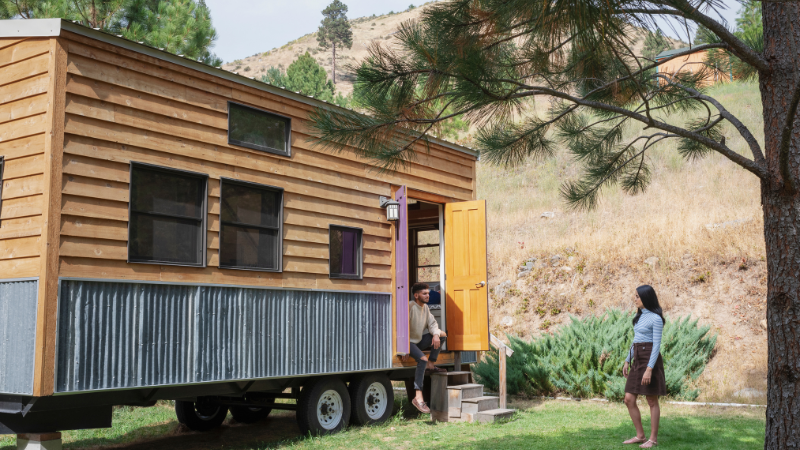Leasing private land for someone to park a tiny home has become an increasingly popular arrangement in New Zealand.
Whether you're considering this option for additional income or simply to make use of vacant space, it's crucial to understand the tax implications that come with such a decision.
Rental Income and Tax Obligations
When you lease your land for a tiny home, this is known as a “Ground lease” and the Tiny Home would be considered a “Residential Dwelling”. Please note these are just terms for tax purposes.
The income you receive is generally considered rental income. This means you may be required to declare it in your annual tax return. In New Zealand, all income, including rent, is subject to taxation.
To ensure compliance with tax regulations, it's essential to keep meticulous records of all financial transactions related to the lease. This includes documenting the amount of rent received, any expenses incurred (such as maintenance or insurance costs), and keeping track of the duration of the lease.
Tax Deductions and Expenses
Just as with any other rental property, you may be eligible for tax deductions on certain expenses associated with leasing your land for a tiny home. The first thing to note when leasing land for a tiny home, is some of your land is now used for generating income, and some is used for your private home and living – This means you have to “apportion” the amount of land used for private and income generation.
Expenses are important to understand because if you have to pay tax on your lease, the amount you pay tax on (Net Profit) is the Income you receive, less any associated expenses.
An easy example would be if you have 1,000sqm section of land, and 100sqm is designated as the exclusive area for the tiny home – this means 10% of your land would be “apportioned” for income generating activity.
So what does this mean for claiming expenses? you can only claim 10% of the expenses associated with leasing your land for a tiny home.
Unfortunately you will have to still declare 100% of your income, and only claim 10% of the expenses.
Common deductible expenses include:
Interest on mortgages: If you financed the purchase of the land with a loan, the interest paid on that loan may be tax-deductible. Please note this is subject to interest deductibility laws and you should always consult a tax professional to determine how they affect your property.
Insurance Costs: Premiums paid for insuring the property can typically be claimed as a deduction.
Maintenance and Repairs: Expenses related to maintaining the property, such as repair work, or pest control, may be eligible for tax deductions.
Rates: Local council rates are generally deductible.
Legal and Professional Fees: Any fees paid to professionals, such as legal or accounting services related to the leasing arrangement, can usually be claimed as a deduction.
It's important to note that the deductibility of these expenses can vary, and specific conditions may apply. Consulting with a tax professional can help ensure you're maximizing your eligible deductions while staying compliant with tax regulations.
Goods and Services Tax (GST)
A residential lease is considered an exempt activity for GST purposes, however you may fall into the GST regime if:
-
You treat your lease as an “Air BnB” type arrangement – similar to how a holiday park allows caravans and tents to pay for leasing land on a short term basis. This may constitute commercial income.
-
The income you generate from this activity is greater than $60k
-
If option 1 applies, The land is owned by a GST registered entity.
Registering for GST means you will need to charge GST on the rental payments you receive. On the flip side, you can also claim GST credits for any expenses related to the leasing activity. It's crucial to keep detailed records of all income and expenses to facilitate accurate GST reporting.
Capital Gains Tax (CGT)
Although I won’t go into detail about a CGT - Please ensure you speak to a professional to understand any risk you may have with a potential CGT if you sell the property at a later date.
Conclusion
Leasing your private land for a tiny home can be a rewarding venture, both socially and financially. However, navigating the tax implications is crucial to ensure compliance with New Zealand tax laws. Keep detailed records of all financial transactions, consult a tax professional to understand your specific situation, and stay informed about any changes in tax regulations that may affect your leasing arrangement. By doing so, you can enjoy the benefits of your venture while minimizing potential tax-related issues.


